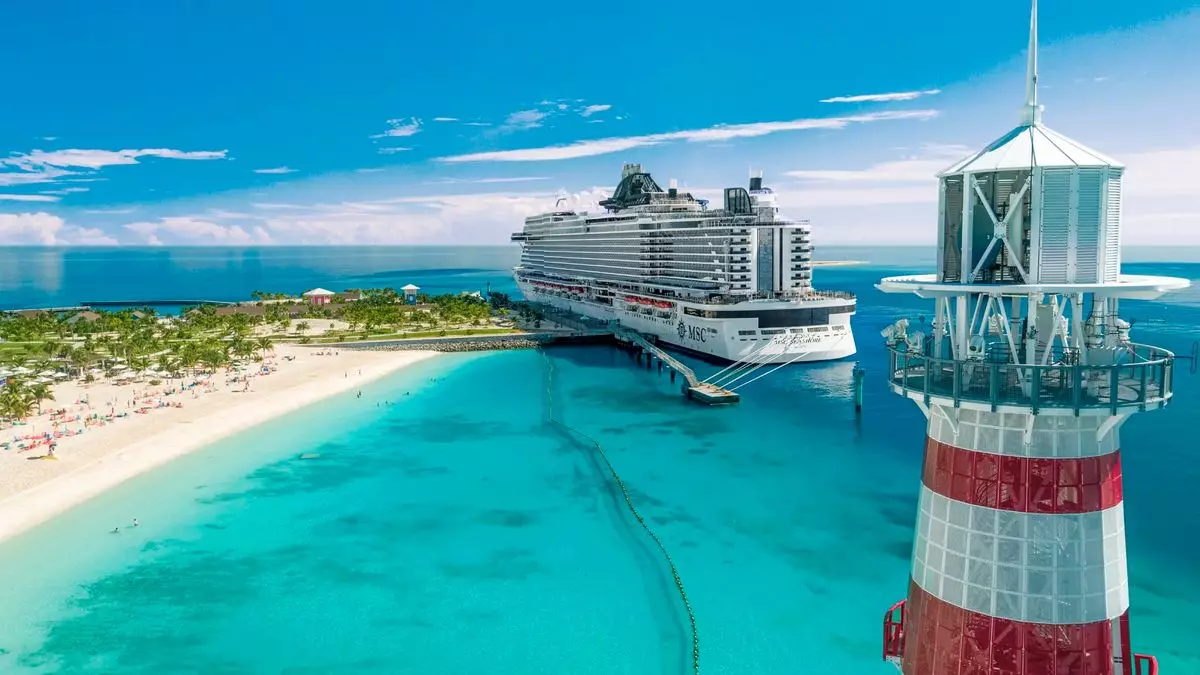The Bahamas government has recently announced its plans to impose a 10% charge on goods and services provided by cruise lines on their private islands. This decision marks a significant shift in policy, as the government had previously exempted private islands from the country’s value-added tax (VAT) for the past nine years. The new charge is set to be implemented on March 1.
The introduction of the VAT on private island activities brings them on par with the taxation level of Bahamians who sell goods and services to travelers in other destinations. Many of the major cruise lines, such as Royal Caribbean, Norwegian Cruise Line, Disney Cruise Line, MSC Cruises, Princess Cruises, and Carnival Cruise Line, have their private destinations located in the Bahamas. This change in policy could have a significant financial impact on these companies.
With the quick implementation of the tax, the cruise lines may initially absorb a considerable portion of the tax increase due to the high booking curve in the industry. However, it is likely that they will eventually pass on the cost to consumers by raising prices. This means that travelers may end up paying more for their cruises in the future as a result of this new tax.
Travel advisors may also be affected by this latest tax imposition. It is possible that cruise lines could increase the amount of noncommissionable fees (NCFs) to compensate for the tax. This could result in a decrease in earnings for travel advisors who rely on commissions from cruise bookings. Anthony Hamawy, the president of Cruise.com, believes that travel advisors are “all about to take a pay cut” because of this development.
So far, there has been no official response from the major cruise lines or industry associations such as CLIA (Cruise Lines International Association) and the Florida-Caribbean Cruise Association. However, given the potential financial impact of this tax, it is likely that they will express their concerns and seek alternative solutions to minimize the burden on both cruise lines and consumers.
This decision by the Bahamas government comes less than a year after it increased the cruise passenger tax with only a few weeks’ notice. In July 2023, the passenger tax rose from $18 to $23 for guests visiting Nassau and Freeport, and for those calling at a private island, the tax is now $25. Additionally, the government recently imposed a $5 tourism environmental tax and a $2 tourism enhancement tax on each cruise passenger. These successive tax increases may pose challenges for the cruise industry and could potentially impact tourism in the Bahamas.
The Bahamas government’s decision to charge cruise lines for goods and services provided on private islands marks a significant shift in policy and may have far-reaching implications for the cruise industry. While the immediate impact on cruise lines may be mitigated by the high booking curve, consumers may ultimately bear the brunt of the new tax through increased prices. Travel advisors may also face challenges as cruise lines explore ways to offset the tax burden. The response from industry associations and major cruise lines remains to be seen, but it is anticipated that they will voice their concerns and work towards finding a solution that balances the interests of all stakeholders involved.


Leave a Reply